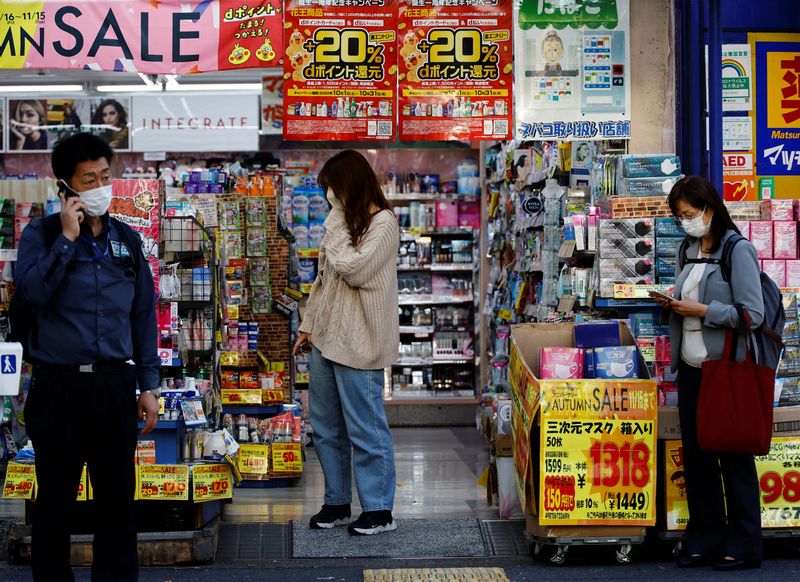Select Language

By Satoshi Sugiyama
TOKYO (Reuters) -Japanese household spending rose for the first time in 14 months in April from the year earlier, data showed on Friday, although the tepid growth showed consumers remained reluctant to loosen their purse-strings in the face of higher prices.
Consumer spending rose 0.5% in April from a year earlier, data from the internal affairs ministry showed. That was slightly below the median market forecast for a 0.6% uptick.
On a seasonally adjusted, month-on-month basis, spending fell 1.2%, versus an estimated 0.2% rise.
"Personal consumption, which has been stagnant for a long time, continues to be weak," said Masato Koike, economist at Sompo Institute Plus. "High prices are weighing on household consumption."
Sluggish private consumption is a source of concern for policymakers striving to achieve sustained economic growth underpinned by solid wages and durable inflation, which are prerequisites for normalising monetary policy.
While spending on education and clothing and footwear increased in April, expenditures in food, entertainment and utilities decreased, the government data showed.
The consumption data comes a day after a Bank of Japan board member Toyoaki Nakamura, one of the more dovish members, said domestic consumption has been sluggish recently, expressing concern that inflation may fall short of the central bank's 2% target from fiscal 2025 onwards if such conditions persist.
Separate data released on Wednesday showed Japan's regular pay in April rose at the fastest pace in nearly three decades but that inflation-adjusted wages remained weak, extending a record streak of 25 consecutive months of decline.
Going forward, consumption is expected to gradually improve as wages hikes from this spring's labour talks materialise, inflation slows down and temporary cuts in resident and income tax boost consumption, Koike at Sompo Institute Plus said.
"If consumption continues to be weak, it will be difficult to normalise the monetary policy, but real wages are expected to recover and consumption is believed to pick up, which will give (the BOJ) momentum for policy normalisation," Koike said.

